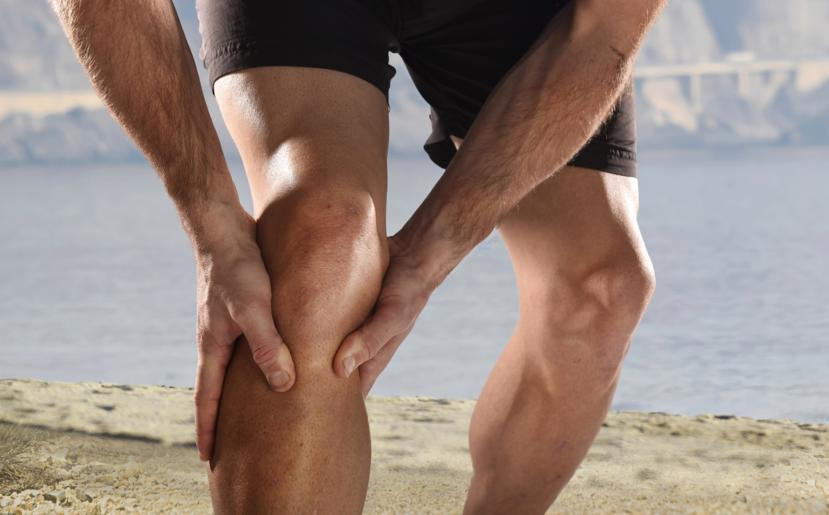Using Google Trends to See If Weather Really Affects Joint Pain

Arthritis is a condition that plagues adults and children of all ages. There have been hundreds of studies conducted seeking to understand the primary causes of arthritis. One particular cause has been gaining ground as of late. The weather.
Many arthritis patients claim they can "feel" when the weather is about to change, as they say it increases their stiffness and joint pain. Researchers at the University of Washington Health Sciences department conducted a study looking at how far spread this belief is among arthritis patients, and whether it truly has any merit.
The Study
Researchers wanted to test how wide spread the belief was by looking at google searches in the 50 most populous U.S. cities (5 were dropped from the final study due to incomplete data), and how the volume of google searches changed based on different types of weather changes. They used Google Trends, a resource that tracks global usage of the search engine at different time periods. Researchers then would get weather data from weather reports that corresponded to the city that was being studied. These reports included temperature, precipitation, humidity, and barometric pressure. Only temperature and precipitation had statistically significant associations with a change in google searches about arthritis pain, so those are the only two weather changes the researchers deeply looked into.
Researchers began by looking at temperatures and temperature ranges. The range used was 23 degrees to 86 degrees Fahrenheit, with searches below or above that range aggregated into one specific number. The first thing researchers found is that most people don't directly search for Arthritis pain. Rather, they tend to search subjects such as knee pain and hip pain. It should be noted that there are many causes for knee pain and hip pain, but the increase in pain in those joints would also point to changes in arthritis patients. As temperatures rise, searches about knee and hip pain rose steadily until about 73 degrees, where they began to drop off again. This is a strange finding, and one that confused researchers.
When looking at precipitation, the results were also the opposite of those hypothesized. Many arthritis patients claim that any change of weather, including rain, will increase their symptoms. However, researchers actually found that searches for joint pain dropped off significantly when precipitation levels increased.
One might wonder what explains these surprising results. Is temperature the key, and rain simply decreases the temperature (and subsequently the number of searches)? Researchers say that none of this in true, and that temperature actually has nothing to do with joint pain. So, does that mean all these patients are paranoid? Do all these searches mean nothing? Researchers say no. There is a reason for the changes in searches, but it doesn't directly have to with temperature.
The Researcher's Conclusion
Researchers believe that these changes in searches, and the changes in arthritis patients, can be explained. They concluded that these changes actually have to do with an increase in physical activity levels. The more physical activity arthritis patients do, the more likely they are to experience pain due to sore muscles and aggravated joints. Researchers believe that it is activity levels, and not the joint pain directly, that increases with a rise in temperature. You are much more likely to go outside and go for a walk or run when it is warm than when it is very cold. This explains the searches dropping off after 73 degrees, as you are also less likely to exercise when it gets very hot outside. This also explains the findings related to precipitation. If it is raining outside, you are much less likely to go out and increase physical activity.
We want to make it clear that this study does not preclude weather affecting arthritis patient's condition, although no studies have been able to find anything but vague associations between the two. Even if it does somehow affect patient's condition, they would be much better served worrying about controlling and monitoring their own physical activity before scrutinizing the weather.
Other Causes of Arthritis
While weather may not be as big of a factor in arthritis patients, there are a number of factors that could increase your risk of developing arthritis and joint pain. Here are a few possible causes and how you can avoid them.
- Genetics - There has been numerous studies that have found that genetics can play at least some part in increasing one's risk of arthritis. Obviously, you can't change your genetics. However, being aware of your heightened risk is important. If your family has a history of developing a certain form of arthritis, especially at an especially young age, you might be predisposed to developing that form of arthritis. If you have a heightened risk of developing arthritis, try and develop a lifestyle that will minimize your risk as much as possible.
- Injury - If you suffer or have suffered a grievous injury, you very well could have an increased risk of certain forms of arthritis. Those who suffer a broken bone may be at risk of developing osteoarthritis if the bone does not heal properly. If you do end up suffering an injury, take great care that you receive the best medical advice you can on how to ensure your body heals properly. It should be noted that even if the body does heal properly, you are likely to still have a slightly increased risk of arthritis.
- Infection - If a wound gets infected there is an increased risk of developing arthritis, especially if the infection affects the cartilage and muscle tissue. This is because infections will often cause inflammation, which leads to increased (and sometimes permanent) joint pains.
- Smoking Cigarettes - It should be no surprise that smoking can lead to health issues. Studies have found that smoking cigarettes can lead to a genetic reaction that increases inflammation in the joints and can even lead to arthritis. If you have never smoked a cigarette you should never start, as it causes a litany of health problems. If you already smoke you should try and consult a medical professional on resources that could help you quit. If nothing else, smoking less cigarettes per week will at least lower your risk a little.
- Physically demanding occupations - If your muscles and joints experience heavy stress every day at work you are at a much higher risk of developing osteoarthritis. You might experience heavy stress if your job involves heavy lifting, pushing, or moving. It is much worse if this movement is repetitive day in and day out. If you have a job that involves a lot of repetitive movements, you should be very careful to stretch often and ensure your muscles are strong enough to handle all of the motions you are constantly doing.
- Obesity - Obesity is a very common cause of arthritis. The main reason is that obesity puts a lot more weight and stress on the joints. This is especially true of hip and knee joints. Having a healthy diet and getting plenty of exercise can help you lose weight and decrease the stress put on your joints. You can also consult a medical professional to discuss other weight loss options.
- Older Age - As we age our cartilage becomes brittle and harder to repair. Most arthritis patients find that their symptoms develop between the ages of 40 and 50 years old. This is again something you cannot control. However, you can ensure that you have a healthy lifestyle even as you age. Regular exercise and a good diet will help preserve your cartilage and lower your risk of arthritis development.
Final Thoughts
Researchers have shown that many arthritis patients put too much focus on the weather when looking at the change in their condition. Arthritis patients, and those who may be at risk, should instead focus on factors they can control like diet, exercise, proper stretching, and monitoring their cigarette consumption. For more information on arthritis and other similar diseases, be sure to check out the rest of our website.
References
https://www.sciencedaily.com/releases/2017/08/170809142022.htm
http://www.arthritisresearchuk.org/arthritis-information/conditions/arthritis/causes.aspx















